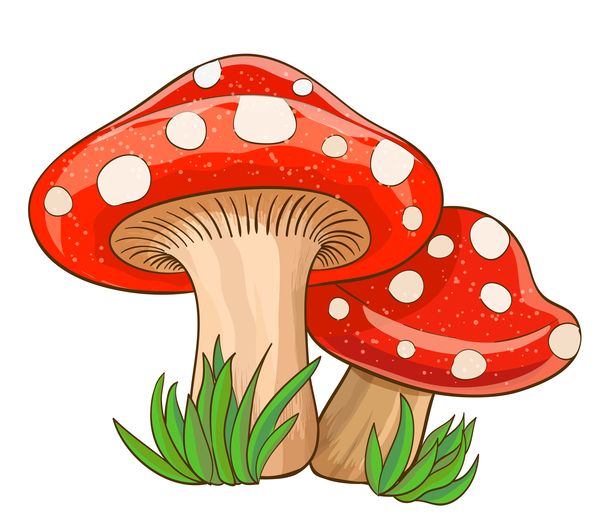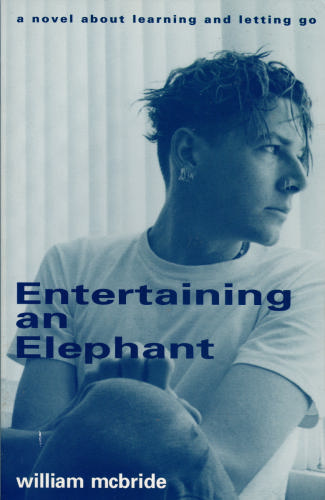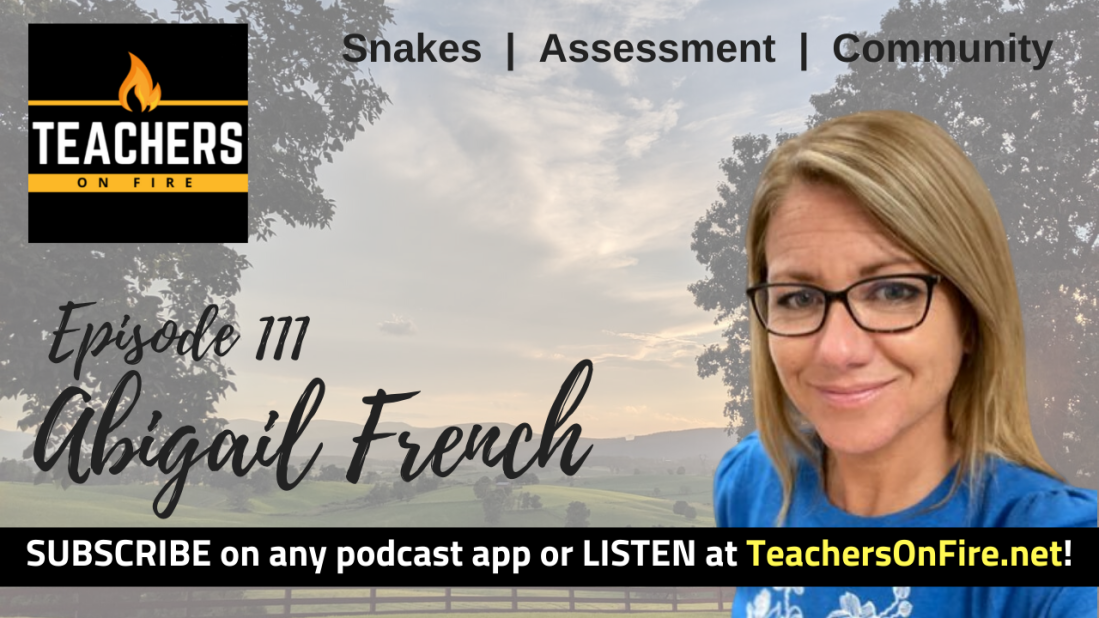Meet Abigail French
ABIGAIL FRENCH is a mother of four, a history teacher for sixth graders, an advocate of public education, and an explorer of the natural world in Woodstock, VA.
A Challenging Professional Reboot
For Abby, one of her biggest professional challenges was returning to the classroom in 2014 after leaving it in 1997. A lot had changed while she was away, particularly technology resources and internet access. She recognized immediately that technology should be used to build skills, facilitate learning, and create deeper understanding, but it took some time to adjust to the changes that technology had brought to the learning environment.
Today, her sixth graders enjoy 1:1 Chromebook access, a move that has come with a mix of tremendous opportunities and practical challenges. “It’s definitely a journey,” Abby says of her use of technology in the classroom. “It’s always evolving – it’s not like you ever arrive.” As she models a posture of constant learning and openness to new things, you sense that Abby’s learners are in good hands.
The Snake That Rocked Edu Twitter
SRP pic.twitter.com/dwhGjQ3D1u
— Abigail French (@awfrench1) July 14, 2019
Abby has been fascinated by herpetology – the study of reptiles – for about as long as she can remember. She’s even gained such notoriety in her community for the courage, care, and prowess she shows around snakes that she is known by some as The Snake Lady!
When her daughter called her about a large snake in the backyard in the summer, Abby didn’t hesitate to run outside and move it. It was likely a female, she says, looking for a nice place to lay her eggs. What others fear, Abby loves to engage and learn from.
Not Measuring Up
Abby isn’t someone who went into teaching because she had such a great experience as a student. In some ways, she actually went into teaching to undo the damage done and to give students a better learning experience than the one she remembers.
As a young student, Abby is quick to point out that she definitely had some good teachers. But she had a learning disability, a processing issue, and that meant that she learned differently than most other kids. The symptoms of academic success, including good grades, words of affirmation, and the approval of her teachers always felt elusive. She still clearly remembers the feelings of falling short, of never being good enough, of never quite fitting into the game of school. Those memories and experiences have shaped her philosophy and professional practice profoundly.
Rethinking Assessment in Her Practice Today
As with technology, Abby’s approach to assessment has been a journey. It starts with a mindset, she says. As she returned to teaching five years ago, she realized that traditional means of assessment – quizzes, tests, and multiple choice assessments – were not satisfying her desire to know what her students actually knew and had learned.
She started looking around at other examples and modes of assessment, asking how she could better partner with her students and include them in every part of the assessment process. She wanted to put students in the driver’s seat: how do YOU want to show what you’ve learned? Building strong relationships with students was an essential step toward empowerment, she observed. Student reactions to her change in philosophy have been exciting, and Abby is constantly learning about the ways to represent learning that energize her students and connect with their passions and interests.
One other way that Abby has started changing her practice is to change the way that she organizes her students’ digital portfolios. Rather than organize them by subjects and units, she has started to organize them around learning targets and skills: analyze and interpret, compare and contrast, using a decision-making model, etc. This means of portfolio organization shifts the focus from the content to the skills: what are we actually trying to learn? Which skill does this work demonstrate?
#HackLearning: Countering Toxic Cultures
Abby recently moderated a #HackLearning Twitter chat about toxicity in schools, and she’s given this topic a lot of thought lately. It’s a challenging topic with a ton of complexity and layers, and she’s quick to point out that there are no quick fixes or easy solutions.
Teachers pour themselves into their work, and the emotional well can get pretty low if communities aren’t doing the important work of caring for their members. The work of teaching becomes doubly difficult in environments of toxic thinking and behavior, but one thing we should always keep in mind is that toxicity is rarely personal. Instead, it usually appears as a symptom of what someone else is going through.
Ultimately, we need to protect our own mindsets by finding supportive partners, both locally and through our professional learning networks. PLNs such as the education community on Twitter can deliver incredible encouragement and inspiration, and it’s a great way to find your people when you’re feeling isolated or marginalized in your own learning community. Even as we connect outside the walls of our school, however, it’s important to continue to invest in our own community.
A Professional Goal: Instructional Coaching
Abby has been exploring some growing opportunities in the area of instructional coaching, and lately it’s been a pleasure to serve in a mastermind group for new teachers. She’s excited to contribute, and she enjoys the growth she sees in her own practice along the way.
Personal Passions Outside of Education
 Outside of school, Abby enjoys sharing passions with her four children. Their curiosities are endless and they stretch her into new spaces that she otherwise wouldn’t necessarily find herself. She is also energized by running, getting into nature, and hunting for mushrooms. Mushrooms fascinate her, and it’s a joy to find them, photograph them, and cook with them.
Outside of school, Abby enjoys sharing passions with her four children. Their curiosities are endless and they stretch her into new spaces that she otherwise wouldn’t necessarily find herself. She is also energized by running, getting into nature, and hunting for mushrooms. Mushrooms fascinate her, and it’s a joy to find them, photograph them, and cook with them.
A Personal Productivity Hack: Time Blocking
Abby credits Aubrey Patterson with the practice of time blocking. She uses Google Calendar to prioritize her time for the week and make sure that the big rocks are accomplished before the sand. Her next mission? Getting a better handle on her Google Drive and organizing it more efficiently.
Voices and Resources That Inspire Her Practice
Over on Twitter, Abby recommends giving Jeanne Wolz a follow @TeacherOffDuty. Jeanne is an instructional coach who Abby has learned a lot from lately. She also recommends following Aubrey Patterson @PattersonAubrey, co-founder of Nohea Kindred, educational leadership strategist, and consultant.
An edtech tool that has taken learning to the next level in her sixth grade classroom as of late is Zoom. Zoom has allowed her to connect with other educators in real time, bringing new insights and information into her classroom.
 Abby’s book pick comes from a book club she joined this year. The title is Entertaining an Elephant: A Novel About Learning and Letting Go by William McBride. The book chronicles the journey of a seasoned teacher who battles burnout. Follow the author on Twitter @DrBilly7.
Abby’s book pick comes from a book club she joined this year. The title is Entertaining an Elephant: A Novel About Learning and Letting Go by William McBride. The book chronicles the journey of a seasoned teacher who battles burnout. Follow the author on Twitter @DrBilly7.
Two podcasts that are making a difference in Abby’s professional practice are Teachers Going Gradeless and Human Restoration Project. Both shows completely reimagine education and particularly assessment, and they’ve been fuel for her professional growth and evolution.
When she’s got no energy left in the day and it’s Netflix time, Abby is watching Peaky Blinders, a great historical series, and Jane the Virgin, a source of non-stop laughs.
We sign off on this great conversation, and Abby gives the best ways to connect with her online. See below for details!
You can connect with Abby on Twitter @AWFrench1.
Connect with the Teachers on Fire podcast on social media:
- On Twitter @TeachersOnFire
- On Instagram @TeachersOnFire
- On Facebook @TeachersOnFire
- On LinkedIn: Tim Cavey
- On Medium at The Teachers on Fire Magazine
- On YouTube: Teachers On Fire
Song Track Credits
- Intro: Stand Up (by Mike Cosmo — license purchased at https://taketones.com/)
- Outtro: Bluntedsesh4 (by Tha Silent Partner, courtesy of FreeMusicArchive.org)
